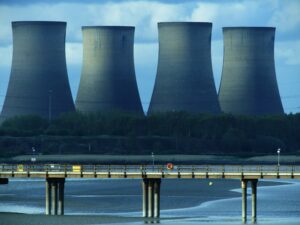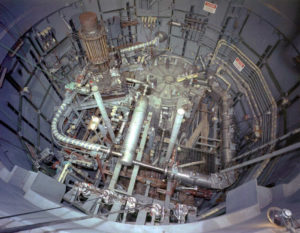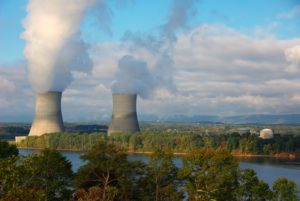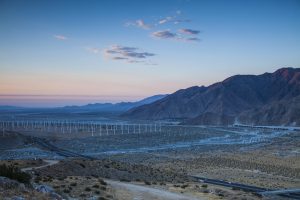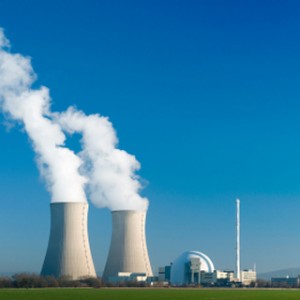62 item(s) were returned.
Founder & CEO
The Idea Logical Company, Inc.
The global heating catastrophe being fostered by humanity’s proclivity to burn fossil fuels for energy is an emergency. An all-hands-on-deck emergency. An employ-every-tool-in-the-toolbox emergency. Despite that, a myth persists that blocks humankind’s use of the most powerful possible energy source that won’t add to the CO2 load. The energy source being vastly underemployed is nuclear. And the myth that stands in the way, so widely accepted as truth, is that “nuclear power is dangerous.” The acceptance of this four-word declarative statement as truth is pretty widespread. People’s fears about nuclear energy emerged in the 1970s due to misinformation and media… [more]
View InsightCo-Executive Director
The Institute for Carbon Removal Law and Policy, American University
Nuclear power plants—which emit zero greenhouse gas emissions and have very low emissions during their entire lifecycle—can contribute significantly to addressing climate change. However, many reactors have been retired, with more to follow. In many cases, these reactors are being supplanted by natural gas, which can result in a large increase in greenhouse gas emissions, especially when methane leakage is taken into account. As the Union of Concerned Scientists recently concluded, “the resulting emissions set back national efforts to achieve needed emissions reductions.” Many energy experts believe that a commitment to thorium-based nuclear reactors might help to turn the tide… [more]
View InsightPresident
Micro-Utilities, Inc.
With the pressing need to find carbon-free sources of electricity to address climate change, some environmental groups that once opposed nuclear power now see it as essential. While policymakers have dismissed nuclear facilities for safety reasons, the new calculus is that the risk from nuclear power plants is far smaller than generally perceived. Policymakers who write-off nuclear as being too dangerous are doing a major disservice to the public by warding off a safe, effective carbon-free technology. Severe nuclear accidents are rare and extremely unlikely to cause any near-term off-site radiation fatalities or radiation sicknesses. A review of four major… [more]
View InsightDirector of Strategy and External Relations
NuScale Power
The threat of climate change has given the United States an opportunity to be a technological leader and set a global example of how to transition towards a clean energy economy. As U.S. policymakers begin to consider policies like the Green New Deal, we encourage them not to overlook a key tool for reaching climate goals: nuclear energy. Today, fossil fuels fulfill roughly two-thirds of our country’s energy needs, emitting carbon and harmful air pollutants. Although renewable energy is growing and new technologies such as carbon capture and sequestration are being tested, these trends alone won’t be enough to decarbonize… [more]
View InsightCommunications Director
ClearPath
To tackle a topic as monumental and divisive as climate change, it will take a politically realistic and technologically inclusive agenda built on advancing clean power around the world. Last Congress, we saw bipartisan support on issues such as a key tax incentive for carbon capture, and a similar fix for advanced nuclear. Legislators found common ground as they focused on both climate benefits and economics. The reality is that any impractical and hasty move toward an all-renewable power strategy in the U.S. will not only be too partisan, but it will also fail to affect the global emissions… [more]
View InsightFrom attempts to bail out coal and nuclear to a Green New Deal, 2018 was an interesting year for energy policy. With a newly divided Congress taking office in January, it seems likely that disagreements regarding the future of the energy industry will continue in 2019, though there may be areas with potential for bipartisanship. Outside of the federal government, it can be expected that 2019 will continue the trend of many state and local governments, as well as private organizations, being active in shaping the direction of our energy sector. A major trend of 2018, which will continue into… [more]
View InsightEnergy Project Campaign Manager, Policy Analyst
Texas Public Policy Foundation
The Production Tax Credit (PTC), a federal renewable energy subsidy, is a $24-per-megawatt-hour credit based on energy production rather than demand. That means those who produce renewable energy can receive the credit regardless of whether or not that electricity is actually needed. The incentive is so immense that at peak hours of output wind producers can actually pay retail electric providers, the companies that deliver the energy to homes and businesses, to take their product. This “negative pricing” scheme caused by the PTC and other subsidies is having serious consequences.The instability it causes can push out the energy producers that keep… [more]
View InsightWilliam J. Perry Fellow, Visiting Scholar
Center for International Security and Cooperation, Stanford University
The 2019 Energy and Water Appropriations bill that President Trump signed early last month provides no funding for Yucca Mountain. In doing so, it officially extends by another year the U.S. government’s failure to implement a portion of the Atomic Energy Act of 1954 whereby the government would accept responsibility for managing the spent fuel from commercial nuclear reactors. In the 1950s, when public faith in government was high, a decision to entrust a federal agency with safely managing waste from the country’s commercial nuclear reactors was relatively uncontroversial. Today, the idea is almost unthinkable. In all likelihood, Yucca Mountain… [more]
View InsightCalifornia is the second state after Hawaii to establish a 100% carbon-free energy goal for its electric grid. In late August, the state legislature passed Senate Bill 100 (SB 100) which created a 100% clean electricity standard by 2045 and also altered California’s current renewable portfolio standard (RPS). Previously, California’s RPS mandated 50% of the state’s retail electricity sales come from renewable sources by 2030, but following passage of SB 100, that figure is now modified to 60%. To achieve the 2045 goal, however, SB 100 takes a broader approach by explicitly instructing California’s energy agencies to “plan for 100%… [more]
View InsightExecutive Vice President
National Taxpayers Union
Republicans rightly criticized the $500 million loan guarantee to failed solar energy company Solyndra under the Obama administration, but now the current administration is preparing energy company bailouts that will dwarf the size of that mistake. If this bailout goes forward, taxpayers will be on the hook for billions of dollars for failing coal and nuclear power plants. The Solyndra failure was a textbook example of the pitfalls that exist when the federal government tries to pick winners and losers in the energy industry. The Trump administration seems to not have learned the lesson, as a number of financially troubled… [more]
View Insight